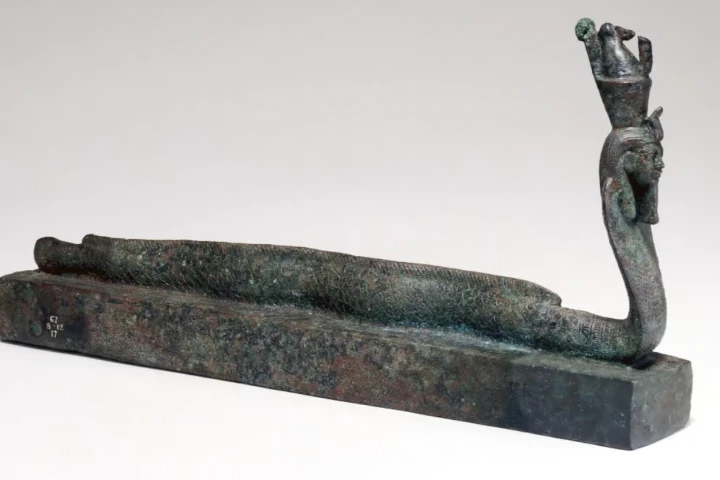British Museum
-
Once thought an exclusive human skill, the ability to make fire on demand has long been seen as a turning point in our evolutionary story. But new research suggests Neanderthals also mastered fire-making hundreds of thousands of years before Homo sapiens.
-
Six incredible ancient Egypt animal coffins have been examined for the first time. To do so, scientists used pioneering neutron imaging, which meant the mummified lizards' stories could be pieced together without the sealed sarcophagi being opened.
-
After only 162 years, the first complete dinosaur skeleton to be recovered has finally been properly reconstructed and studied. The 193-million-year-old remains of a Scelidosaurus spent over 150 years stored at the Natural History Museum in London.
-
Using infrared imaging technology a team at the British Museum has uncovered tattoos on two ancient Egyptian mummies, revealing the oldest ever discovered examples of figurative tattoos, which date back to Egypt's Predynastic period between 3351 and 3017 BCE.
-
One of the prize possessions of the British Museum, the Portland Vase is a work of art so stunning it can stop even the most casual museum browser like a brick wall. But how exactly was this intricately carved vase made?
-
For all the textbooks and museums at our disposal, sometimes it can still be difficult to really imagine what life was like in an earlier time. Visitors to the British Museum this weekend, however, won't have to imagine. They'll be transported to the Bronze Age using virtual reality.
-
This month, the public will get the chance to meet a robot at the Natural History Museum in London that is designed to learn about its surroundings and make it easier to work human environments.
-
The upcoming auction of an marine chronometer highlights just how far science has advanced in the last 200 years. The historically significant instrument accompanied Charles Darwin on his epic second voyage, helped establish the USA-Canada border and accurately mapped the Australian coastline.
-
The Science Museum, with the help of the University College London and ScanLAB, has created a virtual version of the now closed Shipping Gallery to make the exhibit available to future generations








